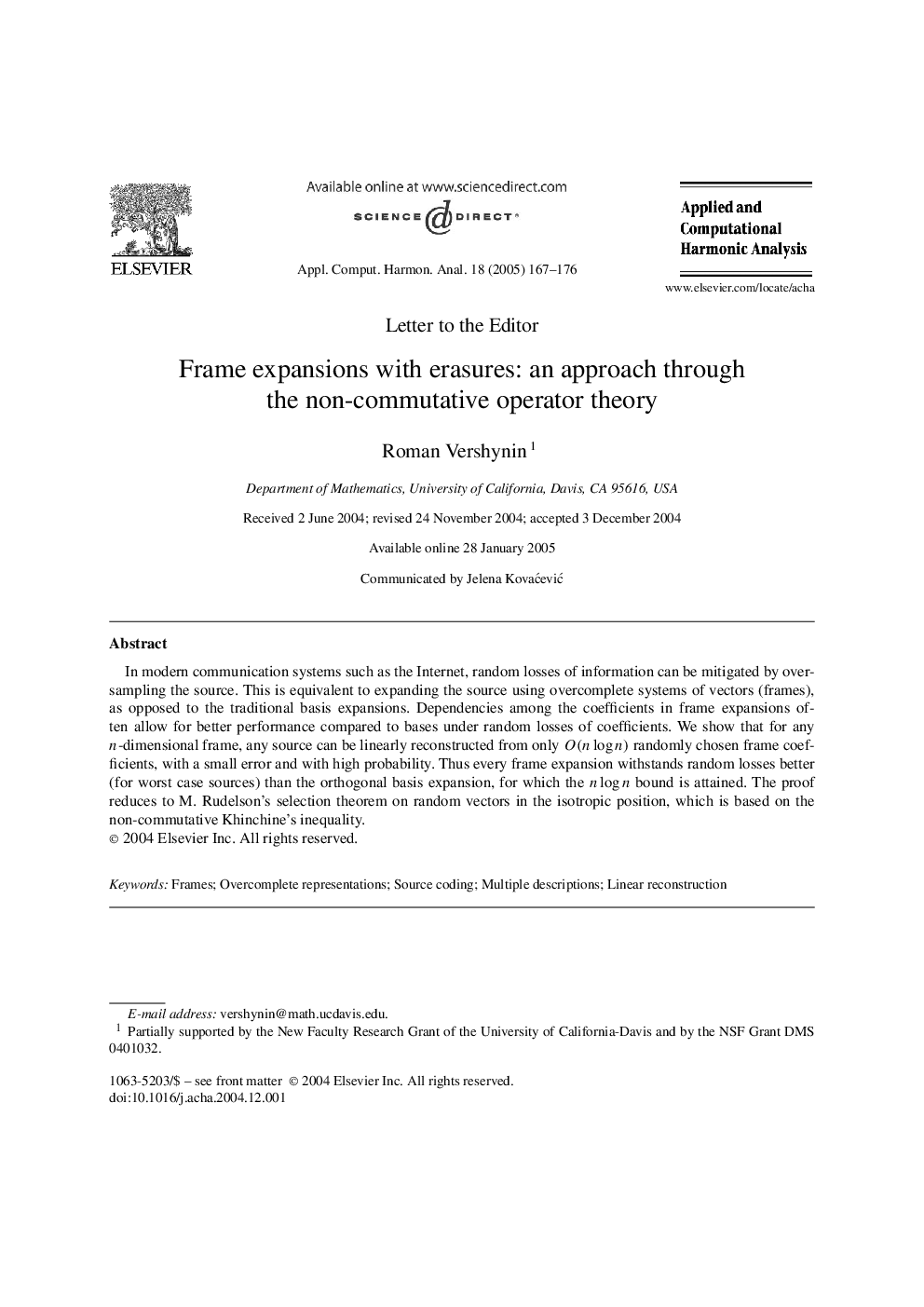| Article ID | Journal | Published Year | Pages | File Type |
|---|---|---|---|---|
| 9500319 | Applied and Computational Harmonic Analysis | 2005 | 10 Pages |
Abstract
In modern communication systems such as the Internet, random losses of information can be mitigated by oversampling the source. This is equivalent to expanding the source using overcomplete systems of vectors (frames), as opposed to the traditional basis expansions. Dependencies among the coefficients in frame expansions often allow for better performance compared to bases under random losses of coefficients. We show that for any n-dimensional frame, any source can be linearly reconstructed from only O(nlogn) randomly chosen frame coefficients, with a small error and with high probability. Thus every frame expansion withstands random losses better (for worst case sources) than the orthogonal basis expansion, for which the nlogn bound is attained. The proof reduces to M. Rudelson's selection theorem on random vectors in the isotropic position, which is based on the non-commutative Khinchine's inequality.
Related Topics
Physical Sciences and Engineering
Mathematics
Analysis
Authors
Roman Vershynin,
